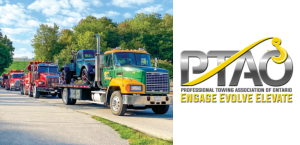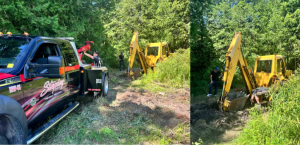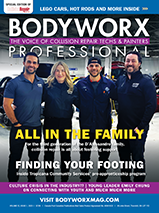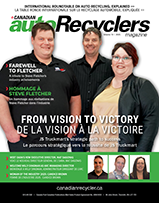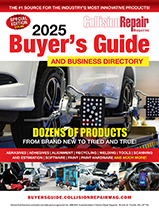By John Norris Towing and storage issues have been a major headache for many Ontario automotive repair shops. From collision repair facilities with massive “chaser” towing invoices charged to drop off a “hooked” vehicle, to the mechanical repair shop with an unpaid repair and the challenges and time they will face in arranging to advertise and sell that vehicle in an attempt to recapture associated costs. In an effort, largely to reduce abuse of the Repair and Storage Liens Act and to address large towing bills that were viewed as a contributor to increased insurance rates, the province of Ontario–acting on the advice of the Anti-Fraud Insurance Task Force–introduced legislation prior to the provincial election to address this issue. This legislation has again been reintroduced since the last election as Bill 15. In Dec. 2013, a stakeholder panel was convened to start the discussions on best options to approach the issues. This led to four meetings in early 2014, under the auspices of the Ministry of Consumer Services (MCS), with two meetings on storage and two meetings on towing. Recommendations from those meetings and an accompanying report from KPMG consultants were reviewed by MCS, and the government moved quickly to enact changes in regulation. Frankly, if you operate a legitimate, compliant repair facility, these changes will have little effect. On the other hand, if you do not, then be prepared for significant change. Ontario towing operators and their vehicles will be regulated by the province. In the past, 18 out of 440 municipalities regulated towing in a patchwork of police contracts, by-laws, and licensing. Towing operators will have to abide with the Commercial Vehicle Operator’s Registration (CVOR), which sets the standards for equipment, training, pricing procedures, safety, and performance. Payments for towing can be made in cash, credit card, and so on. Sections of the Consumer Protection Act relating to a change of no more than 10 percent in billing will be enforceable. Actual pricing models may be set by a “fair value” committee of stakeholders into the future. Infractions are handled by MTO and can involve revocation of license on the tow truck. Storage yard activity is controlled, meaning a yard can not charge more to an insurer than they would normally charge a regular customer. Customers can access goods in their car at no cost. The notice period in the Repair and Storage Liens Act allows for amendments. Currently, the Act refers to notification to those having an ownership interest at no more than 60 days if the shop wants to continue to bill for storage. That may change to as little as 15 days. So notification of owner or lienholder soon becomes more critical. Storage rates will be deemed to be at “fair value” into the future. Towing abuse may be diminished with this Bill, and storage yards–including those shop-owned and on your lot–will get cleared faster. Notification period changes and the need to handle a lien inquiry quickly may mean more expense and time. Not dealing with an $1800 tow bill for a six-block tow will be nice. Always obtain signed repair authorization and customer contact information. Ensure that they are the owner of the vehicle. There is nothing wrong with asking for a deposit prior to major repairs on vehicles that appear to have little resale value. Do not get stuck with a clunker! If you unsure as to whether you should pay a towing bill, please remember, the customer ordered the tow, and is therefore responsible for it. While you are being kind in paying, there is no guarantee of reimbursement. Get paid for what you do! John Norris is with Collision Industry information Assistance (www.ciia.com) and is a member of the MCS stakeholder committees for storage and towing review. You can reach him at johnnorris@ciia.com

Towing Toils: New provincial tow regulations limiting training and service capacity, say Northern Ontario operators
Ottawa, Ontario — Tow operators in Northern Ontario have reported complications with the new industry requirements imposed on July 21,

